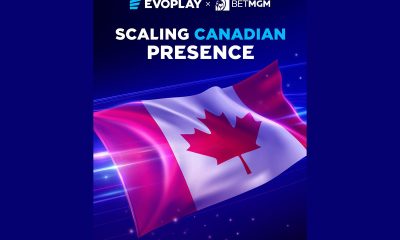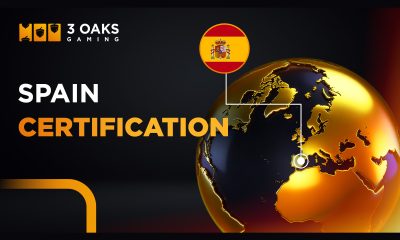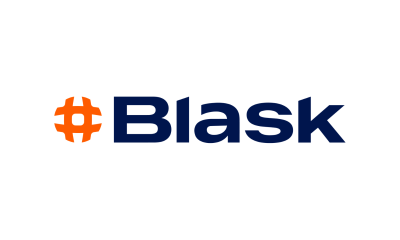Latest News
Statement by the Board of Directors of LeoVegas in relation to the public offer from MGM
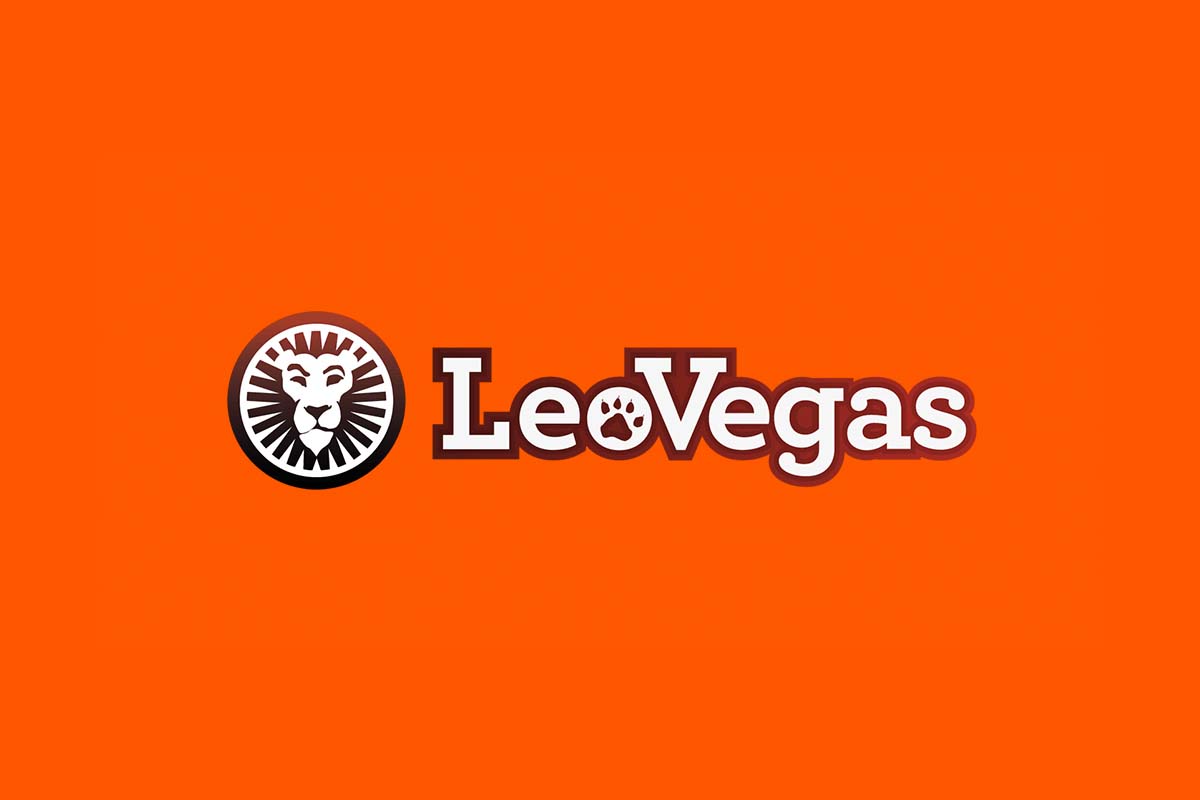
The Board of Directors of LeoVegas unanimously recommends the shareholders of LeoVegas to accept the public offer from MGM of SEK 61 in cash per share.
This statement is made by the Board of Directors[1] of LeoVegas AB (publ) (the “Company” or “LeoVegas”) pursuant to Rule II.19 of the Nasdaq Stockholm Takeover Rules (the “Takeover Rules”).
Background
MGM Casino Next Lion, LLC, a wholly owned indirect subsidiary of MGM Resorts International (“MGM”), has today announced a public offer to the shareholders of LeoVegas to transfer all of their shares in LeoVegas to MGM for a consideration of SEK 61 in cash per LeoVegas share (the “Offer”). The total value of the Offer corresponds to approximately SEK 5,957 million[2]. The price of SEK 61 per share in the Offer will not be increased.
The Offer represents a premium of:
· approximately 44.1 per cent compared to the closing price of SEK 42.32 of LeoVegas shares on Nasdaq Stockholm on 29 April 2022, which was the last trading day prior to the announcement of the Offer;
· approximately 57.6 per cent compared to the volume-weighted average trading price of SEK 38.70 of LeoVegas shares on Nasdaq Stockholm during the last 30 trading days prior to the announcement of the Offer; and
· approximately 76.5 per cent compared to the volume-weighted average trading price of SEK 34.56 of LeoVegas shares on Nasdaq Stockholm during the last 180 trading days prior to the announcement of the Offer.
The acceptance period for the Offer is expected to commence on or around 3 June 2022 and expire on or around 30 August 2022.
Completion of the Offer is conditional upon, inter alia, that the Offer is accepted to such an extent that MGM becomes the owner of shares representing more than 90 per cent of the outstanding shares in LeoVegas (on a fully diluted basis), as well as all regulatory, governmental or similar clearances, approvals and decisions necessary to complete the Offer, including approvals and clearances from competition authorities, being obtained, in each case on terms which, in MGM’s opinion, are acceptable. MGM has reserved the right to waive the conditions for completion of the Offer. The Offer is not conditional upon financing. MGM has stated that it will not increase the price of SEK 61 in the Offer. By this statement, MGM cannot, in accordance with the Takeover Rules, increase the price in the Offer.
The Board of Directors of LeoVegas has given consent to MGM to offer a management incentive plan for certain key employees of LeoVegas and notes that MGM has obtained a statement from the Swedish Securities Council (Sw. Aktiemarknadsnämnden) confirming that the proposed incentive plan is compatible with the Takeover Rules (Ruling 2022:16).
The Board of Directors of LeoVegas has, at the written request of MGM, permitted MGM to carry out a due diligence review of LeoVegas in connection with the preparation of the Offer. With the exception of information that was subsequently included in LeoVegas’ Q1 report for 2022, MGM has not been provided with any inside information regarding LeoVegas in connection with the due diligence review.
MGM has obtained irrevocable undertakings to accept the Offer from the Company’s largest shareholder and Chief Executive Officer, Gustaf Hagman, and certain other shareholders[3]. Gustaf Hagman has undertaken to tender 8,050,000 shares (8.2 per cent of the outstanding shares in LeoVegas), and other shareholders have undertaken to tender a total of 6,909,281 shares in LeoVegas (7.1 per cent). Accordingly, irrevocable undertakings to accept the Offer from shareholders representing in total 14,959,281 shares (15.3 per cent) have been obtained. The irrevocable undertakings apply irrespective of whether a higher competing offer is made. The irrevocable undertakings will terminate if the Offer is not declared unconditional on or before 31 October 2022. In addition, Torsten Söderberg, who is also a Board member of LeoVegas, has stated that he is very supportive of the Offer. Torsten Söderberg and family owns 4,533,861 shares in LeoVegas (4.6 percent).
SEB Corporate Finance (“SEB”) is acting as financial adviser and Cederquist is acting as legal adviser to LeoVegas in connection with the Offer.
Process conducted by the Board of Directors
In parallel with other interested third parties contemplating public tender offers, MGM contacted LeoVegas in December 2021. The Board of Directors engaged SEB to lead the process of evaluating other parties’ interest for the Company. In February 2022, MGM submitted a non-binding offer letter to the Board of Directors of LeoVegas indicating an interest to pursue with a public offer subject to, inter alia, a satisfactory due diligence review and the Board of Directors of LeoVegas recommending the shareholders to accept the offer from MGM. The Board of Directors gave MGM permission to conduct a due diligence review. As instructed by the Board of Directors, SEB entertained parallel processes with other interested parties in the interest of creating maximum value for the shareholders in LeoVegas. Following further negotiations with the Board of Directors and SEB, MGM increased its non-binding offer, to a price level other interested parties could not match, in order to receive a recommendation from the Board of Directors.
The Board of Directors’ recommendation
In its evaluation of the Offer, the Board of Directors has taken a number of factors into account which the Board of Directors deems relevant. These factors include, but are not limited to, the Company’s present strategic and financial position and the Company’s expected potential future development and thereto related opportunities and risks.
The Board of Directors notes that the Offer represents a premium of approximately 44.1 per cent compared to the closing price of SEK 42.32 of the Company’s share on Nasdaq Stockholm on 29 April 2022, which was the last trading day before the announcement of the Offer, and a premium of approximately 57.6 per cent and 76.5 per cent respectively, compared to the volume-weighted average share price for the Company’s share on Nasdaq Stockholm during the last 30 and 180 trading days, respectively, prior to the announcement.
As noted above, LeoVegas has received several indications of interest or non-binding offers concerning a potential tender offer. MGM’s offer is, in the assessment of the LeoVegas Board of Directors, the superior offer from the perspective of the shareholders. The LeoVegas Board of Directors has investigated and considered market and industry trends, and certain strategic alternatives available to LeoVegas. Such alternatives included, but were not limited to, remaining an independent listed company with a possible listing in the USA. The LeoVegas Board of Directors has also considered the risks and uncertainties associated with such alternatives.
LeoVegas operates in an industry which is characterised by, inter alia, high innovation pace, new regulation and consolidation. In this context, the Board of Directors believes that the industrial logic and strategic fit between LeoVegas and MGM is attractive and should serve both the company and its employees well in the future.
The Board of Directors further notes that LeoVegas’ largest shareholder and Chief Executive Officer Gustaf Hagman and certain other shareholders, representing in aggregate 15.3 per cent of the outstanding shares and votes in the Company, have entered into undertakings to accept the Offer, subject to certain conditions, irrespective of whether a higher competing offer is made. In addition, Torsten Söderberg, who is also a Board member of LeoVegas and together with family owns 4.6 per cent of the outstanding shares, has stated that he is very supportive of the Offer.
As part of the Board of Directors’ evaluation of the Offer, the Board of Directors has engaged BDO to issue a so-called fairness opinion regarding the Offer, see Appendix 1. According to the fairness opinion, the Offer is fair to LeoVegas’ shareholders from a financial point of view (subject to the assumptions and considerations set out in the fairness opinion).
Under the Takeover Rules, the Board of Directors shall, based on the statements made by MGM in the Offer press release issued earlier today, present its opinion regarding the impact that the implementation of the Offer will have on LeoVegas, particularly in terms of employment, and its opinion regarding MGM’s strategic plans for LeoVegas and the effects it is anticipated that such plans will have on employment and on the places in which LeoVegas conducts its business. In this respect, the Board of Directors notes that MGM has stated that “MGM values the skills and talents of LeoVegas’ management and employees and intends to continue to safeguard the excellent relationship that LeoVegas has with its employees. Given MGM’s current knowledge of LeoVegas and in light of current market conditions, MGM does not intend to materially alter the operations of LeoVegas following the implementation of the Offer, subject, of course, to MGM’s continued regulatory review. There are currently no decisions on any material changes to LeoVegas’ or MGM’s employees and management or to the existing organization and operations, including the terms of employment and locations of the business”. The Board of Directors assumes that this description is correct and has no reason to take a different view in this respect.
Based on the above, the Board of Directors unanimously recommends the shareholders in LeoVegas to accept the Offer.
This statement shall in all respects be governed by and construed in accordance with Swedish law. Disputes arising from this statement shall be settled exclusively by Swedish courts.
The information in the press release is information that LeoVegas is obliged to make public pursuant to the EU Market Abuse Regulation and the Takeover Rules. The information was submitted for publication, through the agency of the contact person set out above, at 08.00 CEST on 2 May 2022.
[1] The Board member Torsten Söderberg and the Company’s largest shareholder and Chief Executive Officer Gustaf Hagman have not participated in the Board’s evaluation of or discussions regarding the Offer due to conflict of interest.
[2] Based on 97,652,970 outstanding shares in LeoVegas, which excludes 4,000,000 treasury shares held by LeoVegas. In the event that LeoVegas should pay any dividend or make any other value transfer prior to the settlement of the Offer, the price per share in the Offer will be reduced correspondingly.
[3] LOYS AG: 3,259,281 shares (3.3 per cent). Robin Ramm-Ericson: 2,250,000 shares (2.3 per cent). Pontus Hagnö: 1,000,000 shares (1.0 per cent). Gilston Invest AB: 400,000 shares (0.4 per cent).
Powered by WPeMatico
Codere Online
Codere Online Launches iOS Poker App in Mexico, Advancing Its Multi‑Product Expansion Strategy
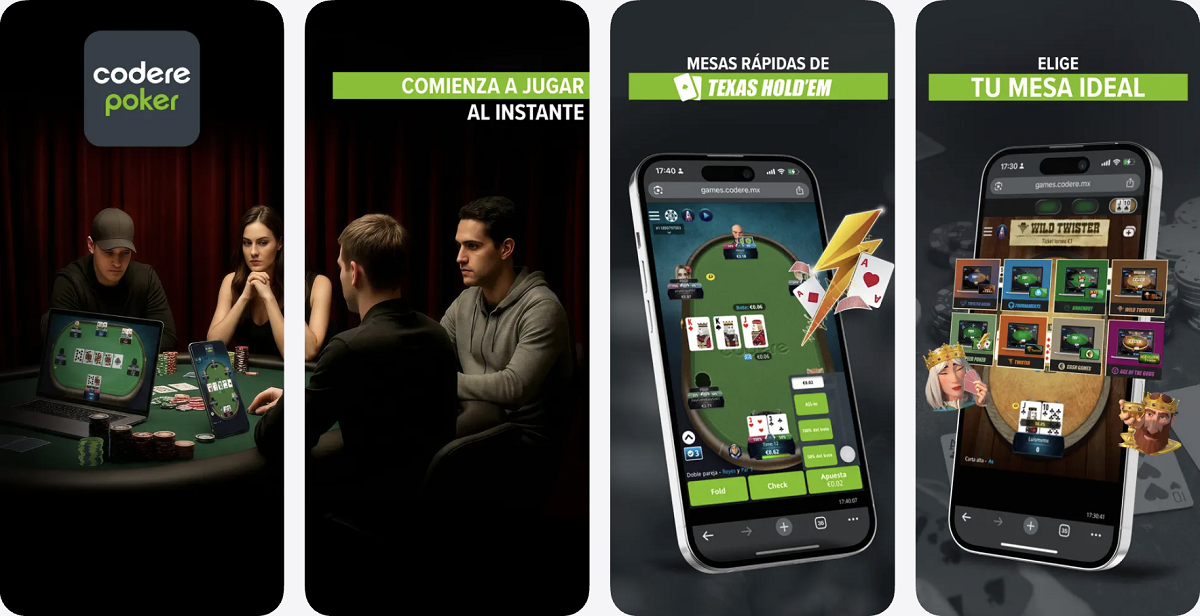
Codere Online Luxembourg, S.A. a leading online gaming operator in Spain and Latin America, today announced the launch of its new iOS Poker application in Mexico, reinforcing the Company’s strategic objective to provide customers with access to a complete suite of online gaming products. As part of this multi‑product roadmap, both Bingo and the Android Poker app will form the next steps in expanding the Company’s offering in the country.
Developed in partnership with Playtech, one of the world’s most established gaming technology providers, the new iOS Poker app integrates directly with Playtech’s player‑vs‑player (P2P) Poker network. This allows Mexican users to compete in real time with players across multiple operators, ensuring deeper liquidity, a more dynamic environment and a superior competitive experience.
Codere Online continues to observe strong demand for Poker in Mexico, with more than 1,300 unique active users per month already engaging with the vertical across existing channels, a clear indicator of the product’s relevance and potential as mobile availability expands.
“Launching the Poker app for iOS in Mexico is a key step in delivering on our commitment to offer customers all major online gaming categories,” said Alberto Telias, Chief Marketing Officer at Codere Online. “Poker has quickly emerged as a highly attractive vertical for our users, and through our partnership with Playtech, we are bringing them a premium, high‑liquidity platform that elevates their experience.”
The new app offers a stable and intuitive interface with access to cash tables, multi‑table tournaments, Sit & Go formats, and fast‑paced modes. It also incorporates Codere Online’s robust responsible gaming tools to ensure that customers can enjoy Poker in a safe and controlled environment.
“This release reflects our strategy to broaden our product offering and enhance the user experience across all key gaming verticals,” said Ran Licht, Head of Product at Codere Online. “Playtech’s P2P network enables us to deliver a feature‑rich Poker environment connected to a broader operator ecosystem, and we look forward to expanding our product suite with additional verticals currently in development.”
“We are proud to partner with Codere Online and bring our P2P Poker network to their players in Mexico through their new iOS app,” commented Marat Koss, Playtech Chief Interactive Gaming Officer. “Codere Online players will now boast access to one of the most liquid and competitive poker networks in the entire industry.
The post Codere Online Launches iOS Poker App in Mexico, Advancing Its Multi‑Product Expansion Strategy appeared first on Americas iGaming & Sports Betting News.
Akhil Sarin
Akhil Sarin Joins Bet It Drives: Stake’s Growth and What iGaming Gets Wrong About Marketing
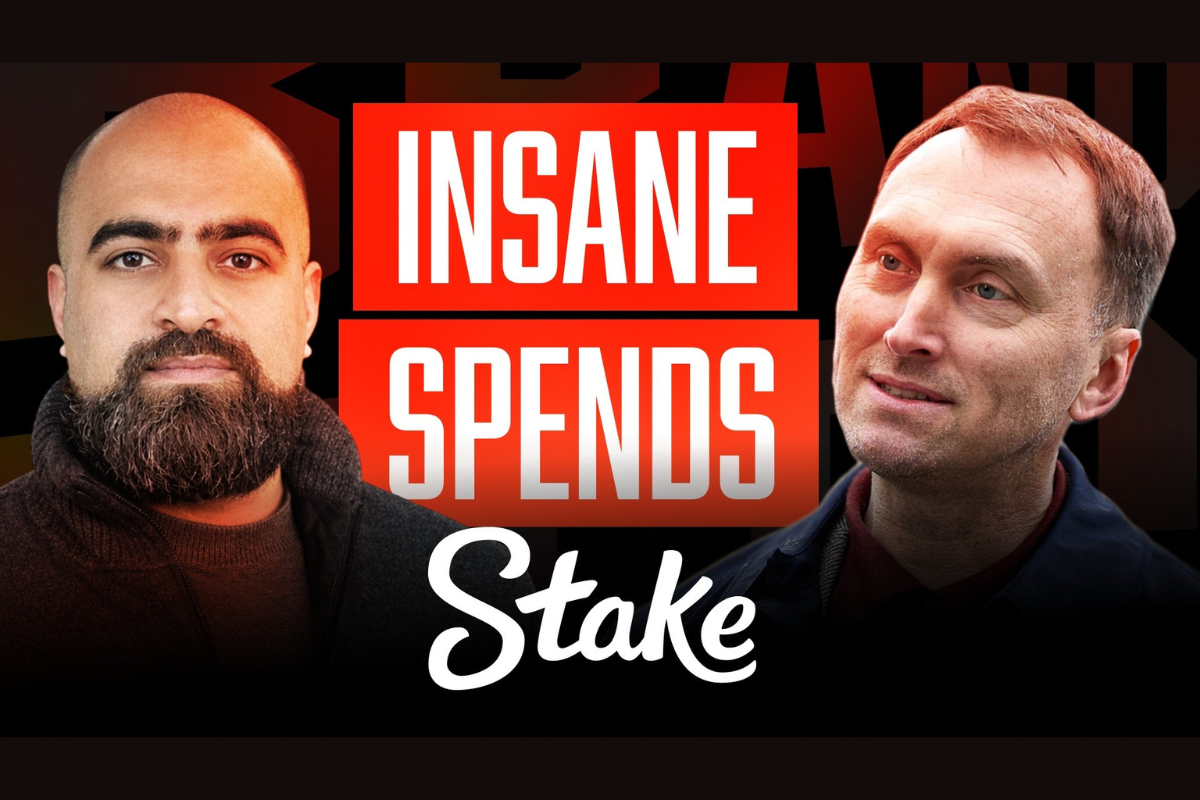
Season 4 of Bet It Drives is back, and Episode 2 features Akhil Sarin, CMO at Easygo and the marketing and partnerships mastermind behind Stake.
Sarin dives into the realities of iGaming marketing, sharing how some of the most cost-effective campaigns can deliver massive impact—including a low-budget idea that went viral with over 16 billion impressions.
Key insights from the episode include:
-
Stake’s most valuable partnerships and why they worked
-
What sets their sponsorship strategy apart
-
Common mistakes iGaming marketing teams make
-
The one thing Sarin wishes teams focused more on
-
Biggest red flags and warning signs in partnerships
-
Leadership lessons and internal trust challenges
The episode also features a fun “Confess or Call” segment, highlighting a late-night call to a senior exec about a high-stakes, unconventional idea—a true test of trust and creativity.
“This season is about open conversations, and Akhil was straight with us,” said Yevhen Krazhan, CSO at GR8 Tech and host of Bet It Drives. “iGaming marketers will rethink spend, partnerships, and what truly drives growth after this episode.”
Season 4 also includes a CEO debate with Cedomir Tomic (Founder, Alea) and Oleksandr Feshchenko (CEO, GR8 Tech), along with upcoming insights on crypto payments in iGaming and esports betting strategies.
Watch or listen to Season 4, Episode 2 on:
The post Akhil Sarin Joins Bet It Drives: Stake’s Growth and What iGaming Gets Wrong About Marketing appeared first on Eastern European Gaming | Global iGaming & Tech Intelligence Hub.
ELA Games
SiGMA Eurasia: ELA Games MD Marharyta Yerina Talks Progression Milestones in Dubai
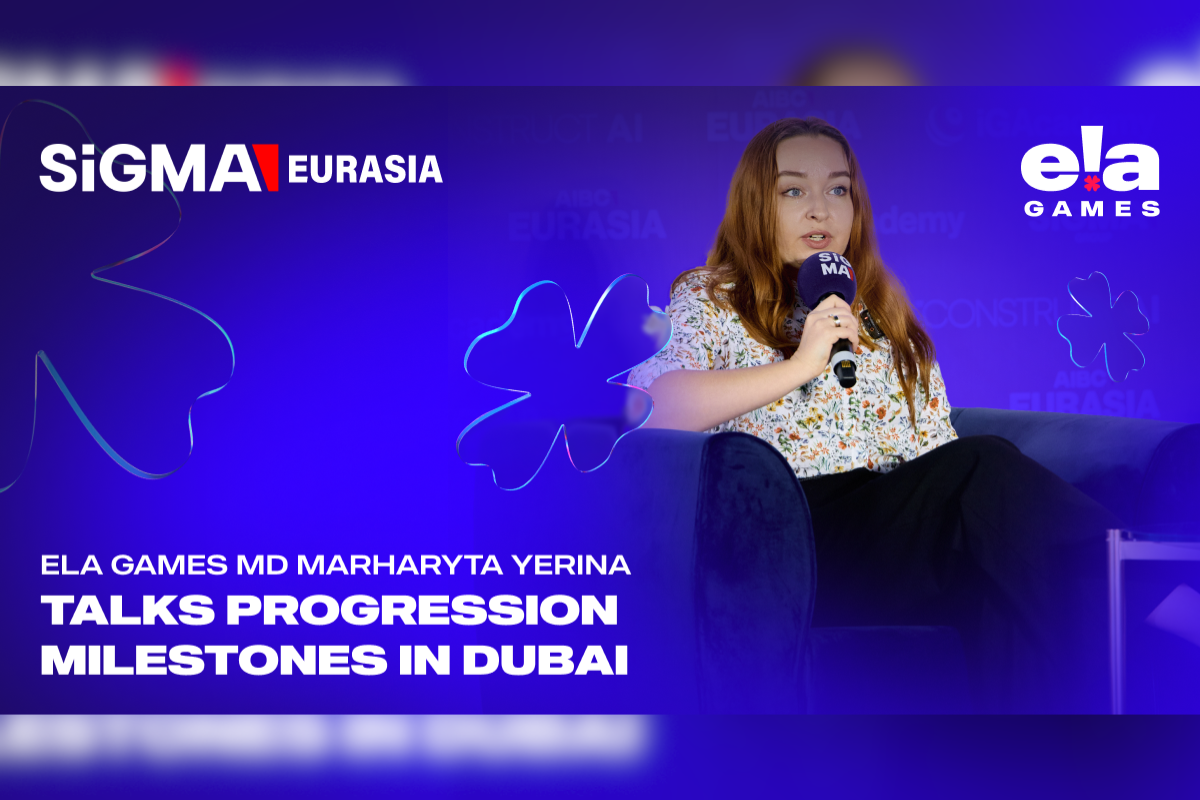
At SiGMA Eurasia on February 11, Marharyta Yerina, Managing Director of ELA Games, joined the panel “Progress Paths: Making Milestones Matter” to discuss innovative approaches to player retention and engagement. The session, moderated by Tim French (Commercial Manager, Greco Fast Track), explored how studios can design progression systems that go beyond conventional loyalty schemes.
Marharyta emphasized that maintaining player interest often comes from subtle design choices rather than overt progress bars. She highlighted how optimizing volatility and feature frequency creates natural anticipation, keeping players engaged through gameplay rhythm. She also advocated for micro-goals—short, intra-session milestones—and stressed the importance of audio-visual feedback to make moments feel rewarding in real time, rather than relying on long-term VIP systems alone.
The panel featured diverse perspectives from the industry, including Alena Tsuranova (CCO, Megafair) and Bulat Fakhrutdinov (Head of Partnerships, Betronic Software), who discussed how commercial strategies and partnerships shape the player journey.
Marharyta’s participation underscores ELA Games’ commitment to player-centric design and demonstrates how the studio’s “For Players, By Players” ethos translates into creating games that keep audiences coming back, while fostering long-term value in partnerships.
The post SiGMA Eurasia: ELA Games MD Marharyta Yerina Talks Progression Milestones in Dubai appeared first on Eastern European Gaming | Global iGaming & Tech Intelligence Hub.
-

 Amusnet6 days ago
Amusnet6 days agoWeek 7/2026 slot games releases
-

 Brino Games6 days ago
Brino Games6 days agoQTech Games integrates more creative content from Brino Games
-

 Aphrodite’s Kiss6 days ago
Aphrodite’s Kiss6 days agoLove on the Reels: Slotland Introduces “Aphrodite’s Kiss”
-

 Alex Malchenko6 days ago
Alex Malchenko6 days agoEvoplay Strengthens Canadian Presence with BetMGM Partnership
-

 3 Oaks Gaming6 days ago
3 Oaks Gaming6 days ago3 Oaks Gaming Enters Spanish Market
-

 blask7 days ago
blask7 days agoWhen LATAM gambles: Blask reveals seasonality patterns across six countries
-

 Latest News6 days ago
Latest News6 days agoRed Papaya Presents: Lucky Rainbow Rush Adventure
-

 AMLA6 days ago
AMLA6 days agoAMLA Launches Public Consultation on Three Draft Regulatory Acts










